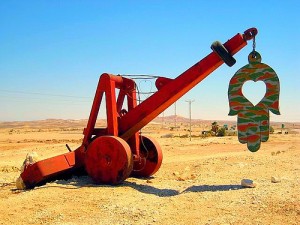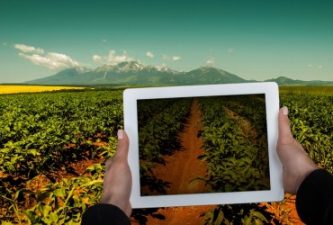Enviro-friendly folks like to extol the virtues of using Ecover. We use some of the products ourselves. Heck, the company’s even been recognized by the United Nations for their work in “cleaning” up the environment.
The plant-based products, which include dish washing soap to floor detergent, are popular among the green types, especially those who consider themselves eco-chic. Admittedly we do feel a bit holier than thou when we use them, feeling as though we have the luxury to pour our washing machine’s grey water all over the garden.
But is Ecover really all that green? The brand may have a brown stain. According to a new survey by Organic Consumers Association, Ecover dish washing detergent has about double the amount of cancer-causing dioxane in it than regular run-o-the-mill washing up detergent.
Dioxane, according to Wikipedia, is a known eye and respiratory tract irritant. It can cause damage to the central nervous system, liver and kidneys. It is a known carcinogen in animals. Used as a solvent, the chemical is also found in foaming agents and as a byproduct in cosmetics manufacturing.
Should we be worried?
The somewhat un-green exposure of Ecover has made it to some of the smaller blogs and community forums such as the Israel_Wholistic_Forum (where we first spotted the find), Allie’s Green Answers and Life Goggles.
Allie wrote Ecover and this is the response she got:
Substantial quantities of dioxane are found in the production of synthetic fibers, such as polyester, a fabric that is worn daily by roughly 85 % of the planet’s population.
Mainly produced by two US companies, the ingredient is also used in high dosages as a solvent in mass production, including the paper and cotton industry as well as the polymer industry for the production of PET bottles.
It is therefore astonishing that the above-mentioned investigation turned a blind eye on such superabundant and well-spread sources and preferred to single out easy-to-research, mere minute traces of dioxine in detergents.
Several years ago, the European detergent industry put a limit on dioxane traces at 100 parts per million of surfactant. Ecover’s own criterion is set at half, namely 50 parts per million.
This leads to values as low as the 2,4 parts detected in the Ecover product. The threshold for reporting the presence of dioxane in tap water in The Netherlands, a country with a stringent environmental legislation, is 3 parts per million parts of water. This means that, in the unlikely event, you drank an entire bottle of pure Ecover Dishwashing liquid you still wouldn’t reach that threshold!”
Perhaps a zero tolerance limit on green products is too much to expect. The news, however, is important for a number of reasons. For one, it will probably blow the lid off the airtight market that Ecover has around the world. Over here in Israel, Ecover is by far the most dominant eco-cleaning product, now being sold even in mainstream grocery stores.
Secondly, do any of us really wonder what makes a cleaning product eco? Other materials in Ecover such as sodium lauryl sulphate are also linked to cancer. Maybe the product is phosphate free, but that doesn’t mean it’s home free (in our green books).
Another thing we’d been wondering about Ecover is all that plastic packaging. Sure it’s possible in some locations to buy the less polluting refillable solutions, but really? Why haven’t the greens thought up a type of cleaning product concentrate, the size of a capsule that one can toss into a bottle and refill with regular tap water? That would save immensely on packaging, transport and disposal waste.
Over here in Israel and on Green Prophet, Sophie from Tinok Yarok imports and sells a Canadian brand called Worx. We’d be interested to hear why Sophie imports this brand and not Ecover.
And back to the survey. Which brands do measure up to the highest green standards?
For minimizing dioxane risk, the best grade goes to Dr. Bronner as non-detectable for dioxane. The brand carries soaps which are not only organic and safe, but all purpose. One soap can go from washing dishes, to teeth, floors and laundry. We had a boyfriend in Toronto once who swore by the stuff – using it to wash his teeth and his hair!
See a screener for a new film about Dr. Bronner. Warning, he’s quirky.
Dr. Bronner was a holocaust survivor, who had a vision to promote world peace. Last we heard there was no-one selling Dr. Bronner in Israel, although his website is selling Holy Land fair trade olive oil.
A business opportunity?
Update #2: see the discussion we started unfold at TreeHugger (there are some great comments by chemists)




Ecover is a scam. The products contain SLES (sodium laureth sulfate) without disclosing it. They fail to disclose it right under a tag on the bottle that says “We disclose all ingredients.”
Thank you Karen for this keeping us on our toes. We must take responsibility for our own health and not rely on words such as natural, ecological and green to assure that the product is reliable. As Socrates said ” a wise man questions oneself and questions others”. There are many other products that need to be investigated. One that I am particularly concerned about is St. Moritz oven cleaner sold here in Israel. I know of someone who’s lungs were so damaged from the product that she had to have a lung transplant and died before the transplant. How can the Misrad Habriut allow a product that causes us to choke and cough to be considered safe and sold at our local grocery stores? If anyone else has had a bad experience with this product please voice it, otherwise no change will happen.
To Chriswaterguy: It’s a big issue because a little bit here, a little bit there, day in, day out can add up to quite a bit! Not only that, but think of all the people who use such a product then send it out to the oceans and into gardens … that can build up to be quite dangerous!
And besides, whose to say that even that “little” amount is not causing problems? The scientific research industry has been proven wrong so many times (DDT to name just one) that it’s amazing we believe them at all!
So, thanks for the heads up, Green Prophet! I already use their laundry detergent and fabric softener and was going to expand on the products I buy from Ecover. Funny thing … I always wondered about their fabric softener. I guess I’ve got some research to do!
If the amount in the pure detergent is less than the Dutch limit for tap water, I don’t see why it’s presented as a big issue.
Thanks for the link and an interesting post. It’s a confusing world out there and it’s only with discussions like this we can try to understand what’s best for us all!
Fascinating. That just shows, you can’t blindly trust an “eco” label and assume all is rosy. What a great idea in terms of a capsule that can be dissolved in water. I smell a (clean) marketing opportunity!
Thanks for this valuable info Karin. Any info on Tidy products?
Thank you for the link! I love your site!